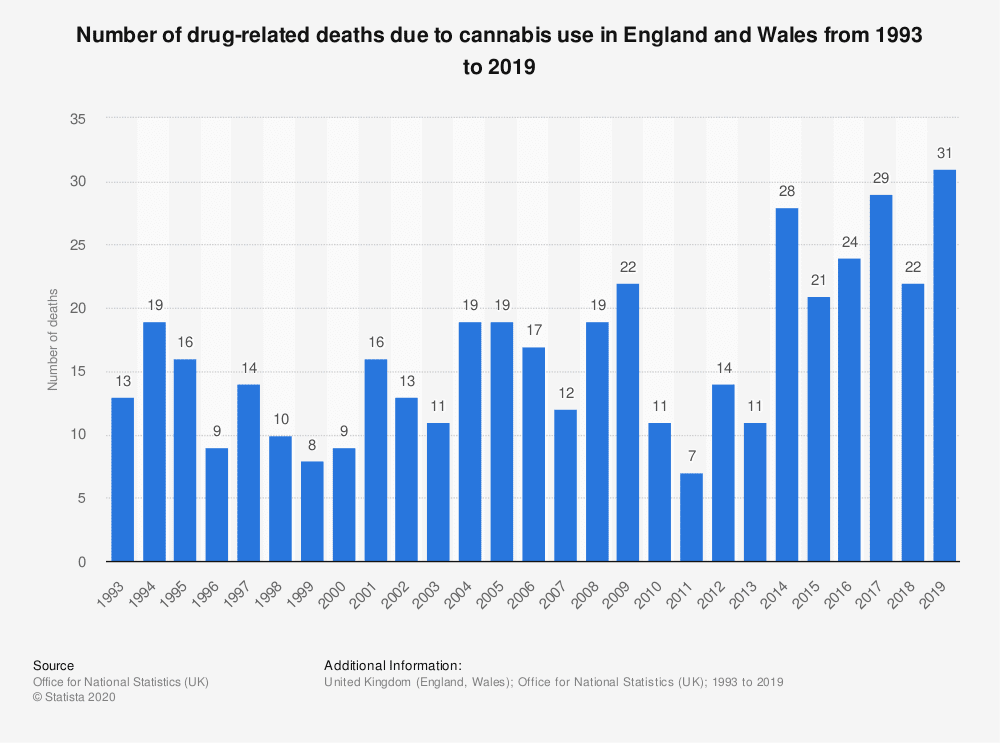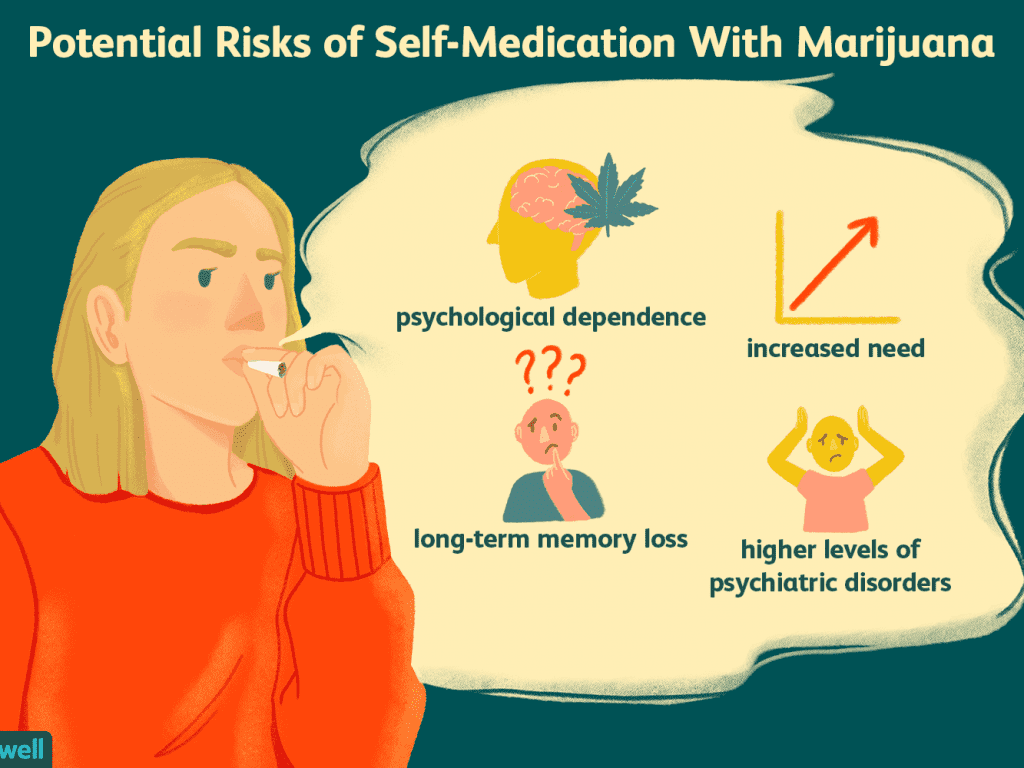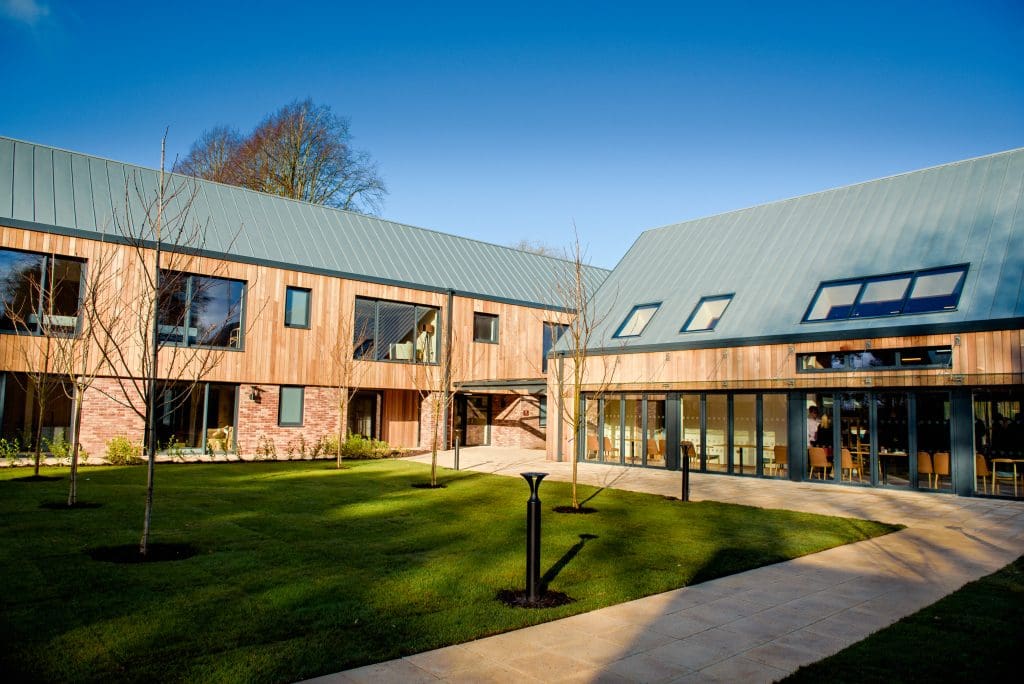-
Call Us: 0330 111 2015


Jump to a section ▼
› Introduction
› What is Cannabis?
› What is Cannabis paraphernalia?
› Is Cannabis a gateway drug?
› The effects of cannabis
› Signs and symptoms
› The dangers of Cannabis addiction
› Cannabis detox
› Cannabis rehab and recovery
Speak with our admission team
Call now on 0330 111 2015Cannabis is the most commonly used illicit drug in each country of the UK and particularly appeals to the younger generation
It’s popularly and addictiveness has led cannabis to be the second most noted illicit drug that caused people to start NHS drug treatment in 2018, including those commencing drug treatment in prison 1
Even though these statistics speak for themselves in terms of cannabis’s ability to lead to addiction, many who use cannabis will argue that it is a harmless organic substance and that no one ever died from using cannabis. This is far removed from the truth.
Cannabis related deaths do sadly occur and street cannabis in particular, is far from harmless or natural.
Those that suffer from an addiction to cannabis often also suffer negative consequences to their relationships, their physical and mental well being, their occupational capacity and their finances.
Cannabis’s active ingredient Tetrahydrocannabinol (THC), possesses strong psychoactive properties that can cause lasting damage to the brain, especially when used frequently or excessively.
A person addicted to cannabis can become very deluded, paranoid, depressed and anxious. They may well develop symptoms of other mental health illnesses leading them to self-medicate with even more cannabis.
Addiction to cannabis is a major problem in the UK, yet only a small proportion of sufferers seek the correct professional help. The mental health symptoms that cannabis often triggers often detract from the actual cause – the drug!
If you or a loved one are struggling with your cannabis use, Delamere hope that this page will help you to identify if you have an addiction to cannabis, provide useful education around cannabis’s various strains and their effects and help you build up the courage to ask for the correct help if needed.
Cannabis is an organically grown plant. It should not be confused with synthetic cannabinoids, which are man made products, produced to mimic the effects of THC.
Cannabis comes from three plants that contain the psychoactive ingredient THC – Tetrahydrocannabinol.
These plants are: Cannabis sativa, Cannabis indica and Cannabis ruderalis.
Cannabis is derived from different parts of the cannabis plant – the flowers, buds, leaves and stem. How and where cannabis is derived from affects its THC potency, as does the particular plant it is extracted from.
Cannabis is also commonly referred to a marijuana, weed or pot.
Smoking cannabis is considered mainly a recreational activity. However, like all substances, when cannabis is used excessively or there is a predisposition to developing addiction or another mental health illness, it can also lead to cannabis dependence and addiction.
Cannabis addiction is a progressive and chronic disease of the brain, characterised by compulsion and continuation despite negative consequences to physical & mental health, personal relationships, social wellbeing and occupation.
It is vital to your wellbeing that you seek professional help if you need or want to stop cannabis but can’t.
Whilst cannabis has been legalised in many countries around the world, including countries in Europe, it is still classified as an illicit Class B drug in the UK under The Misuse of Drugs Act 1971.
All strains of cannabis, including synthetic cannabinoids (with the exception of legitimately prescribed medical cannabis) are illegal to possess, buy, give away or sell in this country.
Production of cannabis with intent to supply, carries a hefty penalty of up to 14 years in prison, unlimited fine, or both.
Possession of cannabis or synthetic cannabinoids can carry up to 5 years imprisonment, an unlimited fine, or both. 1
If you are caught driving a vehicle in the UK whilst intoxicated by cannabis, you will be subject to the same penalties as drink driving.
Medicinal cannabis has been legal to prescribe in the UK since 2018. It is grown specifically for the treatment of exceptional medical cases. The prescription of medical cannabis is subject to very stringent regulations. It is VERY different from illegal street cannabis, which is a completely unregulated drug. 2
Whilst there are no official legal restrictions on the conditions that medicinal cannabis can be prescribed to treat, it is most notably prescribed to patients undergoing chemotherapy, suffering from multiple sclerosis or rare forms of epilepsy. 3
Cannabis oil/hemp that is available to purchase within the UK can only be legal to sell if its THC content is a maximum of 0.1% – 0.2%. The THC must be considered undetectable and also not easily separated from the oil 4
Cannabis paraphernalia is equipment used to smoke cannabis, the most common form of using the drug.
Owning cannabis paraphernalia does not make the person an addict, however it does indicate cannabis use.
Cannabis paraphernalia can also be used to consume other drugs such as crack cocaine and heroin. However, cannabis has a very distinctive smell that should help you to identify which drug is being used.
Cannabis paraphernalia includes:
 Detox safely in our medical facility
Detox safely in our medical facility
 Free collection
Free collection Future-proof
Future-proofThis is the million dollar question that so many parents and those new to using cannabis may well ask. We can only answer this using the facts as we know them.
Using cannabis during your teenage years, whilst your brain is still growing and developing is very high risk.
The human brain continues to evolve until the age of 25. Excessive exposure to ANY drug (including alcohol) can result in permanent damage to the brain and its pathways, which are particularly susceptible to chemical influence whilst still developing.
There is much evidence to suggest that starting cannabis use during teenage and young adolescent years can lead to long term complications with the brain 8
Whether cannabis becomes a gateway drug very much depends on the individual and their reasons for using cannabis.
If a person uses cannabis recreationally or as part of experimentation it doesn’t necessarily open the pathway to harder drugs.
Excessive cannabis use can lead to the development of addiction, a disease which is progressive in nature and can naturally involve taking stronger and more dangerous drugs as part of its natural progression.
Spotting the signs of cannabis intoxication frequently in a person would indicate that they have a problem with cannabis.
Signs of cannabis intoxication include:
Not everyone can tolerate cannabis, this is especially true of the stronger varieties.
Some people will experience what is known as a ‘white out’ or ‘turning green’. This usually happens when there is little to no cannabis tolerance, using a stronger THC variety, or trying a new variety of cannabis for the first time.
Side effects of cannabis include:
Drinking alcohol or taking other drugs with cannabis will intensify cannabis’s effects.
One of the signs of cannabis addiction is frequent intoxication, which the above section will help you to identify.
In addition to being frequently under the influence of cannabis’s effects there are other signs and symptoms of cannabis addiction that may help you identify if you or someone you love suffers from addiction.
Cannabis addiction is a very serious and progressive condition, it often requires professional intervention and treatment.
Cannabis addiction is not curable by any means. However, it can be successfully arrested, treated and recovery can then be maintained.
Signs of Cannabis addiction include:
Cannabis withdrawal symptoms include:
Most cannabis users will argue that cannabis has never killed anyone, this is not the truth!
2019 saw the highest recorded number of cannabis related deaths in England and Wales since records first began, with 31 people dying as a direct result of cannabis. This not include the number of people that take their own life as a result of cannabis induced psychosis or depression.

In addition to the risk of death from illicit street cannabis, there are many dangers and risks associated with cannabis addiction.
A person addicted to cannabis will find themselves taking increasing risks with their cannabis use. They may well find that they need cannabis to function and suffer adverse mental health complications. They will regularly lose control of their cannabis use and find themselves high in inappropriate or dangerous situations..
Cannabis, particularly the stronger varieties, is well known for triggering mental health episodes. These episodes can be extremely detrimental and dangerous. They can also cause a person to use even more cannabis to self-medicate their symptoms .
Self Medicating a pre existing mental health condition with cannabis will only exacerbate symptoms and make the condition more complex to treat.

As such, there is no medically recognised detox available for cannabis. If, however, you choose to undergo a cannabis detox within us here at Delamere. You can be assured that you will not suffer during cannabis withdrawal.
Here at Delamere we treat our guests with the compassion and dignity they deserve.
In addition to receiving around the clock medical care and monitoring, delivered by qualified nursing staff and counsellors, you will also be prescribed a short bespoke medical detox for cannabis.
Our prescribed cannabis detox will help alleviate any cannabis withdrawal symptoms you may experience during the initial days of stopping cannabis.
Sadly, the NHS does not fund rehab for cannabis addiction. This is due to the low crime rates and low physical health complications generally associated with cannabis use.
Here at Delamere’s purpose built addiction treatment and behavioural wellness facility, we recognise the huge demand and need for cannabis detox and rehabilitation treatment. We know it not only saves lives but also changes lives.
If you or a loved one need help to quit cannabis once and for all, please call our team to find out more about our private inpatient cannabis treatment programmes.
All of our programmes are intricately and uniquely tailored to each of our guests, ensuring the most effective and long term outcomes possible.
Permanent recovery from cannabis use is possible with our highly skilled, professional help. Call us today for a free and confidential assessment and advice.

References
Start your recovery journey by calling our admissions team today.
Confidential. Straightforward. Friendly.